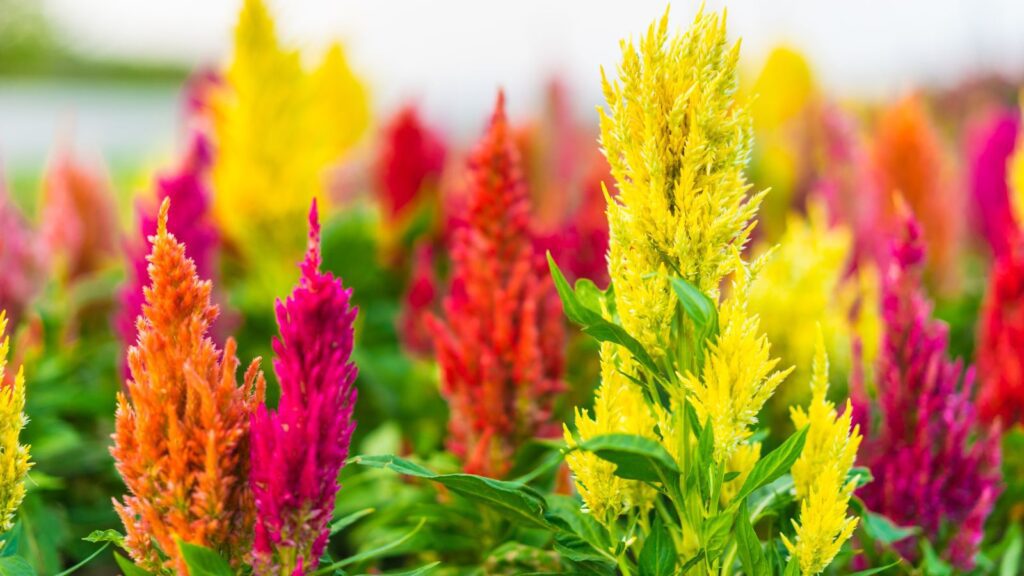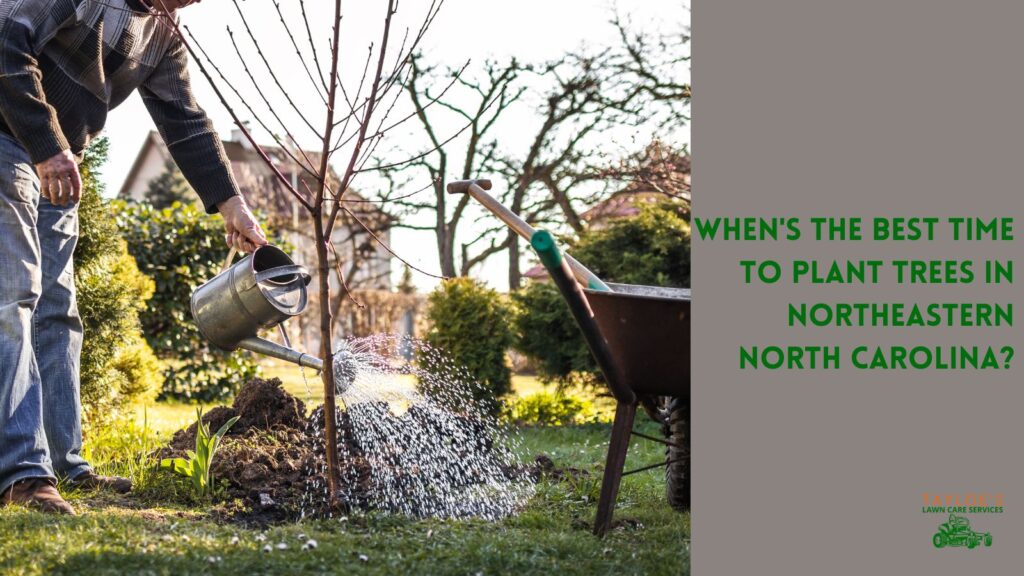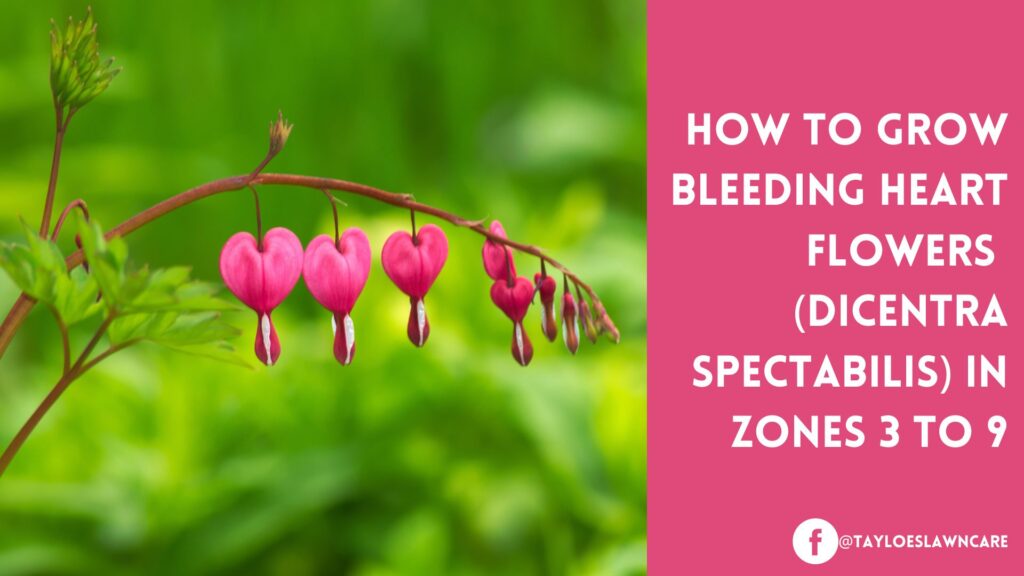Last Updated on: 3rd December 2023, 01:15 pm
Vibrant celosia flowers for zones 2 – 11.
Celosia is a beautiful plant that brings a unique blend of vibrant color and fascinating texture to gardens. Ideal for our climate here in USDA zones 7 and 8 of North Carolina, Celosia is a fantastic choice for gardeners looking to add a splash of drama and intrigue to their landscapes. Some call it cockscomb, but no matter what you call it, it’s a true gem.
Celosia is typically grown as an annual in most climates – USDA zones 2 through 9. That means that cockscomb completes its life cycle—from seed to flower to seed—within a single growing season and does not survive through the winter months in colder climates. In zones where they are not cold-hardy, they must be replanted yearly to maintain them in your garden.
However, frost is not a concern in hot or tropical climates, such as USDA zones 10 and 11. There, some species of Celosia will flourish as perennials, meaning they can live for more than two years.
The Rich History of Celosia
Celosia, known for its flame-like flowers, is part of the Amaranthaceae family. Its name is derived from the Greek word ‘kelos,’ meaning burned, aptly describing its fiery appearance.
Historically, Celosia has been celebrated not just for its ornamental value but also for its use in traditional medicine across various cultures.
Our Hot Summers Means Celosia Is Well-Adapted in Zones 7 and 8
Tayloe’s Lawn Care Services customers, from Windsor, NC to Murfreesboro, NC are in zones 7b and 8a – perfect!
Celosia loves warmth and thrives in full sun, making it well-suited for Zones 7 and 8 in North Carolina. These plants prefer at least 6 hours of direct sunlight each day and enjoy the hot summers typical of our region.
Soil and Watering Requirements
Well-draining soil is essential for Celosia, as it does not tolerate waterlogged conditions. Regular watering, especially during dry spells, will keep them flourishing, but be careful not to overwater.
Popular Cockscomb Varieties for Your Garden
Several Celosia varieties are particularly well-suited for our climate:
‘Cristata’ (Cockscomb Celosia):
The ‘Cristata’ celosia variety is renowned for its distinctive, ruffled texture resembling a rooster’s comb. This unique appearance makes it a standout in any garden. The flowers are often bright and come in various colors, adding a touch of whimsy and visual interest.
‘Spicata’ (Wheat Celosia):
Also known as Wheat Celosia, ‘Spicata’ features elongated, fluffy plumes that resemble wheat stalks. This variety adds an element of softness and vertical interest to garden spaces, with its plumes gently swaying in the breeze.
‘Plumosa’ Celosia:
Known for its feathery, plume-like flowers, ‘Plumosa’ offers the garden a delicate and soft texture. Its fluffy flowers create a light and airy feel. The texture and rich color makes it an excellent choice for adding color and texture to garden beds and borders.
‘Argentea’ Celosia:
Also known as Silver Cock’s Comb, ‘Argentea’ is a striking variety. It is easy to identify for its broad, fan-shaped combs that have a silvery or pale pink hue. Many choose this cultivar for its shimmering, velvety texture. It’s such a show-off that it becomes a natural focal point in garden displays or as a dramatic addition to floral arrangements.
‘Kelos Fire Series’:
This type of Celosia features wonderfully vibrant and intense colors, ranging from fiery red and bright orange to deep magenta. The Kelos Fire series is characterized by its compact, bushy growth habit and ability to withstand heat and dry conditions better than many other varieties. These plants produce a dense cluster of small, feathery flowers, creating a striking visual impact in any garden setting.
‘Childsii’ Celosia:
Known for its distinctive, branching floral structure, ‘Childsii’ forms a series of smaller, rounded flower heads that resemble a miniature version of the traditional cockscomb. This variety often features a mix of bright colors on a single plant, including red, orange, yellow, and pink shades. ‘Childsii’ is ideal for adding color to borders and container gardens or as an eye-catching element in cut flower arrangements.
These six varieties give you so many color options, including reds, pinks, yellows, and oranges, providing a vivid palette for any garden design.
Planting and Caring for Celosia
To plant Celosia, choose a location in your garden that receives full sun and has well-draining soil, as Celosia thrives in warm conditions and does not tolerate overwatering.
Sow the seeds directly into the ground after the last frost, or start them indoors several weeks before the last frost date and transplant the seedlings when they are strong enough and the danger of frost has passed.
Celosia is relatively low maintenance. Deadheading (removing spent blooms) encourages more flowering and prevents self-seeding. They’re generally pest-resistant and don’t require much fertilization. They work as annuals in colder areas but can be perennial in warmer climates.
The Benefits of Planting Celosia
Celosia isn’t just visually striking; it’s also great for attracting pollinators like bees and butterflies, adding to the biodiversity of your garden. Their unique texture and form make them excellent choices for both garden beds and containers, offering versatility in landscape design.
Partner with Tayloe’s Lawn Care Services for a Beautiful Lawn and Yard
Celosia is an excellent choice to create a vibrant focal point or a diverse tapestry of colors and textures. At Tayloe’s Lawn Care Services, we have the expertise to help you integrate these stunning plants into your garden seamlessly.
From selecting the suitable Celosia varieties to suit your garden’s theme to expert planting and maintenance advice, we are here to assist you at every step. Our knowledge of local soil, climate, and gardening techniques ensures your Celosia plants will grow and thrive.
For personalized gardening advice and professional lawn care services, contact Tayloe’s Lawn Care Services. Call or text us at 252.287.3376 or connect with us on Facebook. We can help you transform your lawn and garden into a vibrant, colorful retreat that reflects the beauty of North Carolina’s landscapes. Let’s start planning your garden’s next colorful addition!
Author Profile

- Deborah Tayloe is the CEO and co-founder of Tayloe's Lawn Care Services, LLC. She has a B.S.Ed and holds certificates in soil and water management and herbology from accredited programs.
Latest entries
 Lawn CareFebruary 3, 2026Lawn care trends to expect in 2026
Lawn CareFebruary 3, 2026Lawn care trends to expect in 2026 Lawn CareDecember 29, 2025Commercial winter lawn care is a must
Lawn CareDecember 29, 2025Commercial winter lawn care is a must GardeningSeptember 27, 2025What perennials, shrubs, and trees don’t like fall pruning (and why)?
GardeningSeptember 27, 2025What perennials, shrubs, and trees don’t like fall pruning (and why)? Trees and ShrubsSeptember 14, 2025Fall Shrub Pruning Guide (September–October)
Trees and ShrubsSeptember 14, 2025Fall Shrub Pruning Guide (September–October)








